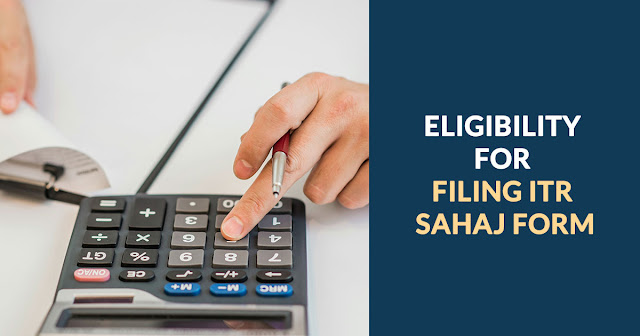Recently, The Income Tax Department has issued notification for various Income Tax Return(ITR) forms that are to be used by different types/categories of taxpayers. Without such changes, the Central Board of Direct Taxes(CBDT) has notified all the 7 ITR. However, some changes that have been made in ITR-1 and ITR-2 Forms have made it complicated to ascertain which taxpayer shall use ITR-1 that is also called Income Tax Sahaj. So putting the criteria of ITR-1 in simple words, those individuals having income from salary, pension, house property, and other income (not from the lottery, business race, and so on) up to Rs 50 lakhs are eligible for ITR-1 or ITR Sahaj Form.
While speaking on the deciding criteria for ITR-1 Sahaj Form, Mumbai based Tax expert Balwant Jain voiced his opinion that "An earning individual whose income falls under the three heads — salary, income from house property and income from other sources — and the income doesn’t exceed ₹50 lakh, is eligible for ITR Sahaj. The taxpayer is eligible for ITR-1 Form filing provided the income from other sources doesn't include capital gain and profit and gains of business."
He further said that an Individual having income from lottery, race, and business makes him non-eligible for the ITR-1 Sahaj form and eligible for the ITR-2 form although his income is less than Rs 50 lakhs. Moreover, an individual who is earning and having carry forward loss is also ineligible for the ITR Sahaj Form.
As per SEBI registered tax expert, Jitendra Solanki "If a pensioner is working as a consultant, then he or she should be filing ITR-3 or ITR-4 form as their income from consultancy falls under 'Profits and Gains of Business or Profession' though it's income from other sources."
Moreover, Solanki further added that if the taxpayer has an agricultural income of up to Rs 5,000, he can file the ITR-Sahaj form. However, if the agricultural income is above Rs 5,000 then the taxpayer is ineligible for the ITR-1 Sahaj form.


Comments
Post a Comment